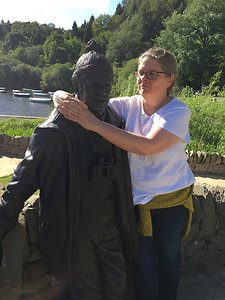What you are doing and what you can do to prevent yourself becoming ill.”
- Maya Angelou
I’m interested in the meaning people make of their experiences in life and what we tell ourselves, about ourselves and our world afterwards. I’m curious about the impact our experiences have in our bodies both physically and emotionally; headaches, chronic pain, fatigue, trouble sleeping, irritable bowel syndrome, depression, anxiety, panic attacks, addiction, our sense of identity and self worth to name a few.
I’m curious about how our experiences can sometimes lead us to have trouble communicating and expressing ourselves, struggling to connect with others and set clear boundaries for ourselves that meet our needs. I’m also curious about the impact our experiences have on our ability to focus, our need for perfection, our fear of failure or success, that sense of never feeling good enough.
I know from experience the potential possibilities that are open to us when we are aware of who we are and the choices we are making in our lives.
What is Person-Centred Therapy?
At the core of the Person-Centred Approach lies the belief that the client is the one who knows what hurts; this arises out of a deep respect for the person and the healing nature of both the therapeutic relationship and the counsellors unwavering trust in the client's ability to heal.
In an environment where the counsellor consistently offers the client acceptance, understanding and genuineness, the therapeutic relationship develops, creating a safe, supportive environment for the healing process to begin.
Another way of saying this is, I bring my own expertise, and I believe you do too. I start from a point that you know you best. You are the expert on you and your life, your feelings, thoughts and experiences, even if, at times, you are not clear what those mean to you. I won't be able to tell you what to do to resolve the problems you bring to counselling, nor will I analyse or give you advice. We will work together to figure it out.
Counselling can help to change the way we feel and perceive ourselves. People come into counselling for lots of reasons. It could be to explore an issue, to work on specific goals or to increase your awareness of yourself.
The sort of distress counselling can help with is usually called 'psychological' or 'emotional' distress and may include; Stress, Conflict at work or in the family home; Bereavement, Coping with poor health or Trauma.
Within our work, my aim is to offer a deep understanding and to genuinely accept who you are and how you feel. In the process of our work it can be challenging, insightful and ultimately empowering.
Counselling is confidential, and I will explain the limitations of confidentiality to you when we meet - there are some exceptions to confidentiality including child protection or vulnerable adult policies that I adhere to.


